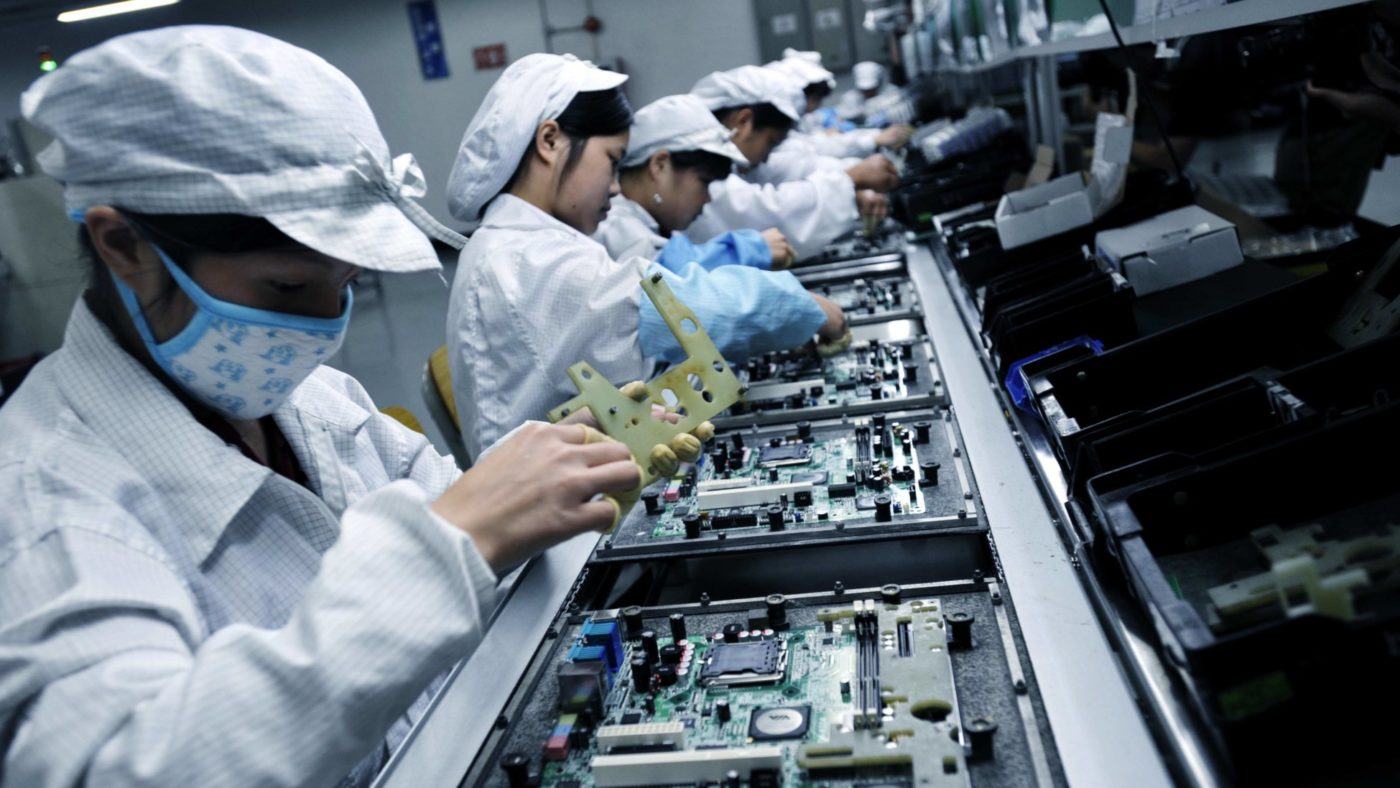Having seen an industrial revolution up close and personal I can report that they’re not nice and they’re not pretty. There is even the possibility that some of the labour does not get the full value of their production – exploitation!
Yet it is necessary to point out, as even Karl Marx managed to get right, that this irruption of dark Satanic mills is the only way we humans have ever found of creating the wealth that lifts us from peasant destitution.
This is the problem with Brian Merchant’s new book, The One Device: The Secret History of the iPhone. We get a stirring report about how how life in those vast sheds in Shenzhen is dreary, pay isn’t all that much, work is repetitive and so on. The bit we don’t get is the flip side: that there’s nothing at all to recommend this as a lifestyle other than it being better than all of the others on offer. In fact, this dullard work in warehouses has raised the Chinese manufacturing wage from $1,000 a year to $7,000 in under two decades. That is the largest diminution in poverty in the history of our species.
Merchant, of course, makes much of the bout of suicides in that Foxconn plant. He does also describe Steve Job’s “claim” that this was lower than the national suicide incidence. It’s not a claim, it’s a fact: so perhaps conditions inside these factories are better than they are outside.
As Paul Krugman has spent years repeating, those sweatshops may not be all that great but they must, by definition, be better than the available alternatives. Otherwise, no one would be in them, would they? The grasping factory owners must offer more than can be made in a rice paddy to tempt people to leave the water buffalo alone.
We have two further proofs of this, one is the work of Chris Woodruff on the earlier (think rather more Georgian than Victorian grasping mill owners at this time) stage Bangladeshi industrial revolution taking place right now. As he notes, the largely female workforce in those mills are suffering from stress. And stress at home is falling away at the same time. Having to sew zippers onto some piece of fashion could indeed, at the rates they have to work and for the the rates they get paid, be stressful. Not seeing multiple children die from having nothing at all would seem to cause a reduction in stress. Odd that, but then human beings are funny things.
Our second is the historical experience of our own dear sceptered isle girt in silver sea as it is. At the time Engels was recording the vileness of Manchester, others were investigating the condition of farmhands across the country. Those within migration distance of being worked to death in the cotton industry were getting 25 shillings a week and very favourable rents on their cottages and veg gardens. Those in Dorset, the least industrial of the English counties, were getting 8s and rack rents. Again, Marx was one who got this: the capitalists, in the absence of that reserve army of the unemployed, must compete with each other for the labour they may exploit. Thus wages get bid up where there are more factories, this then extends right across the labour force, yea even unto the yokel.
All of which tells us something about those sheds and the jobs in them. We don’t want fewer of them, we want more of them. We most certainly don’t want those still in absolute poverty left untainted by some race to the bottom. We want the lust for the lucre and pelf, the profits, to be made from labour exploitation to spread to everyone so that, just as was true for our forbears, wages rise everywhere.
It bears repeating for the third time: this was all something that even Marx, got right about economics. More factories and more capitalism – leavened of course by those markets and the choices that they enable – produces a rise in living standards. That was true for us and it has been true wherever anyone has ever climbed up out of absolute poverty and it’s going to be true of those few places left which have not yet done so.
All of which leaves the great puzzle: why is it that those who complain so bitterly about the poverty, often claiming Marxist or perhaps Marxian insight into its existence, are also those who complain so bitterly about the solution?


